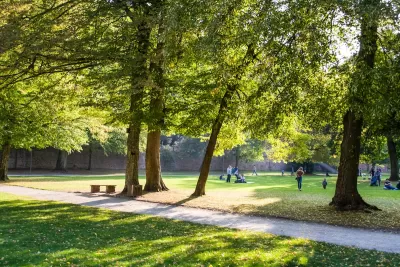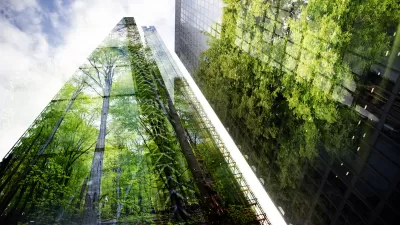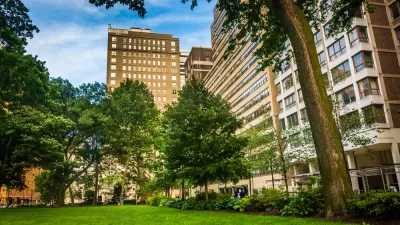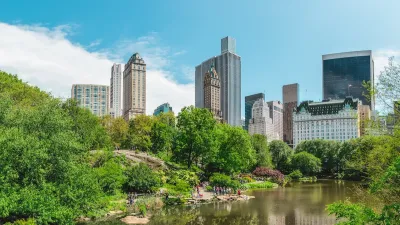The Urban Land Institute offers fact sheets describing five innovative ways that parks can reduce carbon emissions and mitigate climate threats while advancing health, equity, and quality of life in urban areas.

Parks play a crucial role in advancing sustainability by providing green spaces that perform a variety of important functions, such as mitigating the urban heat island effect, promoting biodiversity, and acting as natural air filters to improve air quality. Parks also contribute to communities' ability to withstand and recover from challenges such as extreme weather events and climate change. They offer natural flood management by absorbing excess rainwater, reducing the risk of floods. This capability is enhanced by incorporating features like rain gardens and permeable pavements. In addition, parks provide spaces for community gathering and recreation, promoting physical and mental well-being.
The Urban Land Institute (ULI) recently published the following five fact sheets which explain how parks and green spaces can reduce carbon emissions and mitigate climate threats, while advancing health, equity, and quality of life in urban areas:
- Promoting Green Infrastructure
- Supporting Ecosystem Restoration
- Mitigating Urban Heat
- Leveraging Parks as Carbon Sinks
- Investing in Solar Energy
For more information, please visit this link.
FULL STORY: How Parks Advance Sustainability and Resilience

Planetizen Federal Action Tracker
A weekly monitor of how Trump’s orders and actions are impacting planners and planning in America.

Congressman Proposes Bill to Rename DC Metro “Trump Train”
The Make Autorail Great Again Act would withhold federal funding to the system until the Washington Metropolitan Area Transit Authority (WMATA), rebrands as the Washington Metropolitan Authority for Greater Access (WMAGA).

The Simple Legislative Tool Transforming Vacant Downtowns
In California, Michigan and Georgia, an easy win is bringing dollars — and delight — back to city centers.

The States Losing Rural Delivery Rooms at an Alarming Pace
In some states, as few as 9% of rural hospitals still deliver babies. As a result, rising pre-term births, no adequate pre-term care and harrowing close calls are a growing reality.

The Small South Asian Republic Going all in on EVs
Thanks to one simple policy change less than five years ago, 65% of new cars in this Himalayan country are now electric.

DC Backpedals on Bike Lane Protection, Swaps Barriers for Paint
Citing aesthetic concerns, the city is removing the concrete barriers and flexposts that once separated Arizona Avenue cyclists from motor vehicles.
Urban Design for Planners 1: Software Tools
This six-course series explores essential urban design concepts using open source software and equips planners with the tools they need to participate fully in the urban design process.
Planning for Universal Design
Learn the tools for implementing Universal Design in planning regulations.
Smith Gee Studio
City of Charlotte
City of Camden Redevelopment Agency
City of Astoria
Transportation Research & Education Center (TREC) at Portland State University
US High Speed Rail Association
City of Camden Redevelopment Agency
Municipality of Princeton (NJ)





























